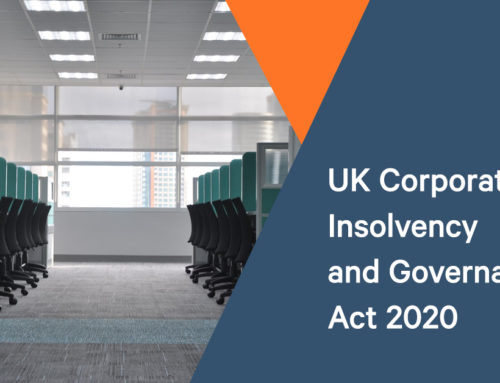When a company goes into liquidation, a key part of a liquidator’s role is to sell any remaining assets such as property or stock. This is the case whether the company voluntary or compulsory, solvent or insolvent.
Sometimes, with voluntary liquidation of a solvent company, those assets will be transferred to either the directors, shareholders or to another company. However, if the company is insolvent, the assets must be sold in order to pay the liquidators, HMRC, creditors and any other fees.
Selling at auction
The majority of the time, liquidators will sell assets via an auction often with a reserve price, i.e. the market value of the asset. There are auction houses across the UK that specialise in selling the assets of liquidated companies. Business liquidators in Norwich will usually liaise directly with those auctioneers on behalf of their retained client, i.e. the company being liquidated.
Insolvency practitioners and liquidators work with specialised auction houses that have developed the expertise to handle liquidated stock. For example, Wilsons Auctions, one of the few liquidated stock auction houses that covers the UK and Northern Ireland, works closely with law enforcement agencies, government bodies, official receivers, councils, solicitors, asset liquidators, insolvency practitioners and business liquidators in Norwich in managing the whole process of asset realisation. Their services include the valuation of assets, collecting and storing stock, and the auctioning of the assets.
Most auctioneers and auction houses have good relationships with official receivers, insolvency practitioners, solicitors, accountants and business liquidators in their areas. Whether it is selling goods or property, auction houses that handle liquidated stock sales often specialise in this area.
Selling via a prearranged asset sale
This form of selling a company’s assets on behalf of an insolvent company must be arranged and handled by appointed insolvency practitioner or administrator. In a prearranged asset sale, as with an auction, it is possible for the insolvent company’s directors to purchase the assets and transfer them to a new company. This is called a ‘newco’, as long as the asset is bought at market value or above.
The insolvency practitioner or liquidator handling the prearranged asset sale must act fairly and in line with Statement of Insolvency Practice (SIP) 16 guidelines. They must also ensure that this form of disposing of assets will generate the best outcome for creditors. The benefits of a prearranged asset sale include:
- Business operations are less likely to be interrupted or badly affected
- Directors and employees are more likely to retain their jobs
- Stops secured creditors from forcing the company into liquidation or bankruptcy
- It is more cost-effective than standard administration
- It is quicker to arrange – the valuation of the assets, marketing of the sale and negotiations with creditors can be achieved within days
- Assets are often sold at a higher price than they would attain at an auction
- The insolvent company has the opportunity of negotiating with potential buyers for a better sale price.
It is at the valuation stage of a prearranged asset sale that auctioneers find out about businesses that are potentially closing. If certain assets in the prearranged sale are not sold, the auctioneer has the opportunity of handling the sale of those assets in the future.
The Gazette
Whether a business is closing voluntarily, i.e. an MVL or CVL, or it is being forced to wind up, which is known as compulsory liquidation, the insolvency practitioner that has been appointed to handle the liquidation process is required, by law, to place a notice in The Gazette.
The Gazette is a combination of three publications: The London Gazette, The Belfast Gazette and The Edinburgh Gazette. All three are considered official journals of record and are mainly made up of statutory notices, i.e. whoever is placing the advert is doing so because of a legal requirement.
There are a wide range of notices published in The Gazette, from government and church notices to honours and awards, state and royal family adverts. Under the Companies section, there is a sub-section for corporate insolvency which lists all the businesses in the UK are winding up, have issued notices to and had meetings with creditors, and where liquidators have been appointed. Auctioneers are able to view the official notice which details the company’s location, the nature of its business, the type of liquidation and contact details of the insolvency practitioners or liquidators who are handling the matter. This will enable auctioneers to contact the relevant person to whom to present their credentials for managing any sale of assets.
Searching online
In this digital age, the internet is often the first port of call when searching for businesses that are closing. If the business is large or corporate, news items or press releases may be published online through digital newspapers and publications. There are specific websites that detail businesses that have gone into administration, bankruptcy or liquidation on a weekly or monthly basis. Business Sales Report, under its Administration News section, reports on businesses across the UK that are in administration, or are struggling and may go into administration if they can’t find a buyer. They also list new businesses for sale on a daily basis.
Company Rescue, an organisation that works to save viable businesses and help them avoid liquidation, lists companies that have gone into administration, a CVA or liquidation. Whilst it’s not a comprehensive list, it does provide news on the major businesses that have failed in the UK. For example, on 13th November 2020 they reported that the coffee chain, Caffe Nero, had gone into a company voluntary arrangement due to the second lockdown, with KPMG handling the insolvency procedure.
The Government’s website lists companies that are in liquidation or have received a winding up petition from creditors. The website also has details of businesses that are under any restrictions due to bankruptcy.
If you are planning on liquidating your company and are considering holding a going out of business or liquidation sale prior to winding up the company, the first step is to seek professional advice. Our highly experienced professionals at Leading UK are on hand to help and advise on the process.






